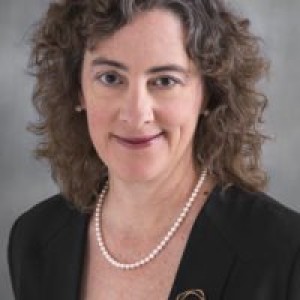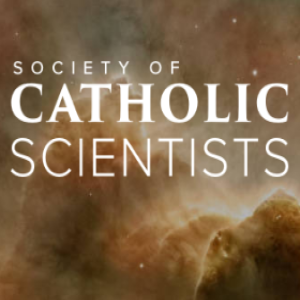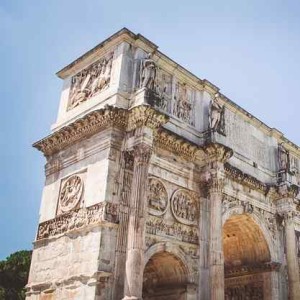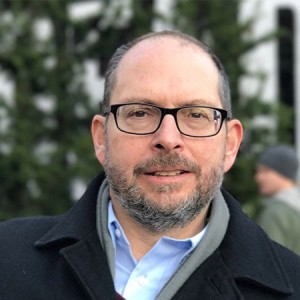Episodes

Monday Jul 01, 2019
Episode 066 - Maureen Condic, part II
Monday Jul 01, 2019
Monday Jul 01, 2019
- Our discussion of totipotent, pluripotent, and plenipotent stem cells helped to clarify a complex subject of great importance to many people, such as those who suffer from diseases awaiting therapies capturing the power of these cells. Dr. Maureen Condic, as a pioneer in this field, contributed insights in 2013 by developing the concept of plenipotent cells. See her journal article.
- Our discussion also led to a sense of wonderment about the ability of cells to follow such complex paths of development, starting with the organism created when sperm and egg combine. The product and the process can easily be dismissed as a simple mass of cells, or one can recall Psalm 139:14, “I am fearfully and wonderfully made.” In this episode, we discussed how it seems viscerally sad that the amazement, which is itself so full of potential, can be lost in everyday discussions of human life.
- Related to this, Dr. Condic pointed out that there is an unfortunate lack of philosophical education among many scientists. Here is a blog post from Scientific American discussing synergies between science and philosophy—synergies which are at the core of this podcast’s mission.
- We discussed the relevance of the philosophical concepts of form and substance. Here’s a web page explaining those concepts.
- This book, written by Dr. Condic and her brother sounds like it is a rare and valuable synthesis of philosophical and biological insights about life: Human Embryos, Human Beings. She noted in our episode that such an extended, on-point synthesis is rare for various reasons, including the need to clarify vocabulary used on both sides of the dialogue, avoiding the risk that we will talk past each other.
- She has written another book, this one examining the biological and philosophical issues around human twinning, Untangling Twinning. It is scheduled for publication in the summer of 2019. For now, a computer search using this title yielded, as one of the first finds, a copy of a news release written by TSSM podcast co-host Bill Schmitt and posted at classicaltheism.com.

Monday Jun 24, 2019
Episode 065 - Maureen Condic, part I
Monday Jun 24, 2019
Monday Jun 24, 2019
- University of Utah’s information page for Dr. Maureen Condic. She is an Associate Professor of Neurobiology and Anatomy, with an adjunct appointment in Pediatrics. Her research focuses on the role of stem cells in development and regeneration. She has taught human embryology in the University’s Medical School for 20 years.
- See Dr. Condic’s biographical summary in the list of speakers at the Society of Catholic Scientists 2019 conference titled, “What Does It Mean to Be Human?” At the conference, this embryologist and specialist in developmental neurobiology delivered the St. Albert Award Lecture: “Human Beings are Defined by Organization.”
- Dr. Condic is the 2019 recipient of the St. Albert Award, named for Saint Albert the Great, the Catholic Church’s patron saint of natural scientists. The award is given annually to a Catholic scientist whose life and work give witness to the harmony that exists between the vocation of scientist and the life of faith. See more details about the award, including its previous recipients.
- Dr. Condic’s previous awards include the Basil O’Connor Starter Scholar Research Award, created in 1973 and presented by the March of Dimes to support a young scientist’s promising new research. The March of Dimes was established by President Franklin D. Roosevelt, initially to fight polio. Today, the foundation focuses on health problems in babies, especially premature birth, birth defects, and low birth weight. Find context for the program of research support here.
- Dr. Condic also has been the recipient of a Scholar Award for research from the McKnight Endowment Fund for Neuroscience.
- In 2018, she was appointed to the National Science Board. The NSB establishes the policies of the National Science Foundation and serves as advisor to Congress and the President.
- She is a member of the Pontifical Academy for Life, which is dedicated to promoting the Catholic Church’s consistent life ethic and supporting research in bioethics and moral theology.
- When confronted with alternative views and occasionally accused of being “brainwashed” with a pro-life stance, Dr. Condic says one must ask, what view actually makes more sense of the world? A quote from the episode: “What vision of the world actually accounts for most of the data? In my experience, it’s a Christian vision of the world, and particularly a Catholic vision of the world, that very much endorses precisely the kind of questioning mind that promotes scientific investigation….”
- Another key thought from the episode: The information generated in scientific disciplines is so huge, it forces many scientists to make their own fields of specialized inquiry “narrower and narrower.” Also, “they have no time” to give deep consideration to many big questions about life, the world, and the origin of the universe. “Particularly in biology, there’s such an intoxication with success.” Individuals who are indeed brilliant and making remarkable progress for people may become confident that they can answer all the important questions.
- Starting at about the 22-minute mark in this episode, Dr. Condic tells the story of an event that changed her life and produced her commitment to public advocacy and public education.“ She saw a need to combat ignorance or oversimplification about scientific advancements and to be “an advocate for patients and knowledge and factual information.”
- Dr. Condic also provides a valuable, clear update on parts of the debate about disease treatments using embryonic stem cells as opposed to adult stem cells, with research on the latter having resulted in a huge number of clinical trials and prospects for various treatments. A major new phase of the research has moved on to the use of induced pluripotent stem cells, which do not raise the same ethical issues as embryonic cells.
- In presenting the St. Albert Award during the Society of Catholic Scientists conference, president Stephen Barr, Ph.D., pointed out Dr. Condic’s “courageous public defense, on scientific and philosophical grounds, on the human status of human embryos.”

Monday Jun 17, 2019
Episode 064 - SCS 2019 Panel, part II
Monday Jun 17, 2019
Monday Jun 17, 2019
This is the second part of our panel discussion with two conference attendees, Merissa Newton, a philosophy instructor at the University of New England and Geoffrey Woollard, a cancer researcher at the University of Toronto.
[This file is vastly improved from the original version; Bill was able to provide a backup from his portable microphone.]
The individual videos of the conference talks are or will be posted soon at https://www.catholicscientists.org/ideas/theme/video-archive

Thursday Jun 13, 2019
Episode 063 - SCS 2019 Panel, part I
Thursday Jun 13, 2019
Thursday Jun 13, 2019
After laboring through some technical problems, here is our first full post-SCS Conference episode.
We had a panel discussion with two conference attendees, Merissa Newton, a philosophy instructor at the University of New England and Geoffrey Woollard, a cancer researcher at the University of Toronto.
This conference was a heady experience, and as a self-taught amateur podcaster and interviewer, I was absurdly far out of my comfort zone. Things went surprisingly well save for one critical error: I neglected to do much of any testing of my laptop and microphone before I started recording. A whole bunch of lessons I hopefully learned there... In any case, today's audio may be the worst of the conference. I had to think long and hard about whether to air this episode, or what if anything to cut. Bill had backup audio starting halfway through this episode, so feel free to skip ahead to about 17:10 to miss the problematic section.
The individual videos of the conference talks will be posted soon at https://www.catholicscientists.org/ideas/theme/video-archive

Sunday Jun 09, 2019
Bonus - Quick Hits - SCS 2019
Sunday Jun 09, 2019
Sunday Jun 09, 2019
Paul and Bill do a quick rundown of the highlights of the SCS Conference. Look for our panel discussion and interviews with conference speakers starting tomorrow!
The audio quality is definitely off on this one. Maybe a hardware issue.

Thursday Jun 06, 2019
Post Christian: Sides to Religion
Thursday Jun 06, 2019
Thursday Jun 06, 2019
My grandmother, Georgia (Joiner) Bredewater, was born on this day in 1921 in Texas.
Just a quick one today in the run-up to the big event at Notre Dame. I had the chance to be on the Pat Flynn Show (upcoming) and we talked about a variety of things. Pat has a very intellectual take on faith. As I was thinking through my life so far in preparation for that conversation, I was considering how it has taught me that there are multiple sides to religion and faith, and I realize that I am lagging behind where I could be on all of them.
You could divide these up any number of ways, but for today I will draw out four of them:
- Intellectual faith. This is about thinking through the philosophical, scientific, theological, and historical issues surrounding a religion and its teachings and deciding whether it seems credible or not. This is how I approach a lot of life (at least on the conscious level!) and was definitely my way in to the Catholic faith in the first place. Catholic Christianity has a huge, well-lit, clearly signed set of intellectual entrances and a huge, expansive, richly decorated set of chambers where we can stand or sit or kneel and enjoy pondering the intellectual beauty of it all.
- Emotional faith. Interestingly, despite all many emotional issues, I had a practice of emotional faith from the very beginning. I have always been attracted to music, and during the years of high school after my initial conversion at 14 I would cultivate this side of myself by singing and teaching myself to play the tunes of different hymns on my clarinet. In a way, as it says in Revelation, I have fallen away from my "first love" as embodied in and built up by these practices, and that hasn't helped me.
- Community of faith. On the other hand, as a teenager I was really an island, like that Ethiopian in the Acts of the Apostles where Deacon Phillip is whisked into his presence just long enough to present some Biblical apologetics, baptize him, and then get whisked away again. I often wonder how that Ethiopian got on when he got home. Fortunately for me, I wound up at the Wash U CSC for four or five pretty happy years... then I went to grad school, and the emotional beating that that applied to me, followed by over a decade of moving every two years (or less), has left me pretty rootless again.
- Meditation and contemplation. And yet, that time at grad school was not wasted in terms of faith either. It was at Notre Dame, for heaven's sake, and you will not find me among those people grousing about Notre Dame selling out its Catholic identity. There are plenty of rich veins of Catholicism there if you take a moment to find them. Somehow I was led to an education for ministry class for adults, and there I got my first real lessons in mental prayer. (We used Opening to God by Fr. Thomas Green, a book whose memory I still cherish.)

Monday Jun 03, 2019
Episode 062 - Jonathan Lunine SCS Conference Preview
Monday Jun 03, 2019
Monday Jun 03, 2019
We had more insane audio problems on this episode; Paul's audio from Zencastr was unusable. I had to record a new introduction and first question, then splice in our backup recording from Zoom.
Jonathan Lunine is a prominent planetary scientist. He teaches at Cornell and is a member of the National Academy of Sciences; he has won a Urey award and holds a number of other academic distinctions. He worked with the radar and other instruments on the Cassini mission to Saturn and is co-investigator on the Juno mission now in orbit at Jupiter as well as on the MISE instrument for the Europa Clipper mission. He is on the science team for the James Webb Space Telescope, focusing on characterization of extrasolar planets and Kuiper Belt objects.
I opened the interview by asking his side of the story of the beginning of the Society of Catholic Scientists. We discuss its growth so far and how it is reaching the point where hopefully more members will become involved in planning and carrying out activities.
We discussed the overall trajectory of conference themes so far. (Remember, kids, two points may suffice to draw a straight line, but not to define a trend!) The first SCS conference topic was Origins (mostly of the physical universe). The second focused on the Human Mind and Physicalism. This third one zooms out somewhat again and covers humanity more broadly, and touches on two hot-button points:
- If we have all these distinctively human features (consciousness, free will, etc.), is there any way of knowing when in absolute, archeological/geological time those came into existence?
- Given all our biological and electronic capabilities, we can change our own bodies and brains in radical ways, and these capabilities are only going to grow. Where should we stop? What channels should these abilities be directed into, and where do the dikes belong?
Jonathan hopes that the diversity of speakers, not just from different sciences but across the science-facing pieces of the humanities, will become a hallmark of the SCS conferences: a place where badly needed interdisciplinary conversations are fostered. We discuss the difficulties inherent in our siloing, not just of academic disciplines, but of journalism, too.
Once again, SCS conference will happen June 7-9 at the University of Notre Dame. We will be providing bonus episodes during the conference as we discuss the topics and speakers with conference attendees, and will have breakdowns of the conference and speaker interviews rolling out over the ensuing weeks.
Also be sure to check the SCS website for videos of the actual talks!

Monday May 27, 2019
Episode 061 – Preview of SCS Conference 2019
Monday May 27, 2019
Monday May 27, 2019
Bill and Paul discuss the upcoming SCS conference at Notre Dame, June 7-9, on “What Does It Mean To Be Human?”
Themes we discussed:
The question of human origins:
from the natural theology perspective… when did consciousness, qualia, free will appear?
From the perspective of Judeo-Christian revelation… how do the origin stories in Genesis compare to contemporary archeology and anthropology?
The question of evolution and its significance in a universe with divine providence.
The question of human modification through bio- and electronic technology.

Friday May 24, 2019
Post Christian: "Recovering Catholic"
Friday May 24, 2019
Friday May 24, 2019
NB: I am not a "recovering Catholic."
I got 99 problems, but being Catholic ain't one.

Clearly I would rather just post memes today than write an actual blog post. Probably because this just leaves me so sad and frustrated. I have some ideas what some other people have gone through... people whom the Catholic Church, or rather some specific people in it, treated badly or at any rate failed to meet them with the help they needed and that Being Itself wanted them to have... but I know almost no one's specifics, and I cannot bloody FIX it all, or any of it for that matter.
I don't know what it's like for Catholicism to be, or seem like, The Problem instead of my companion from the very first step toward The Solution out of the liquid hog shit in the very lowest subbasement of my empty, tortured life. The very idea horrifies me. "Why can't they see that this or that or this other sin is clearly against the entire real teaching of the Church? Why can't they see that this teaching they disagree with is the exact opposite of arbitrary? Why...?" I have no words to express it all today.
There are definite ways in which things within the Catholic tradition have been put to work against me. (Protip: You anxious, depressive, compulsive types out there... don't try reading Cassian without a kind and loving spiritual director, or John of the Cross for that matter.) At this vantage point, in every one of those cases, I see those situations as the Devil quoting Scripture to me just like he did in the desert to Jesus; in some sense, as demonic possession. The demons love to pervert the holy, and have loved watching me hurt myself until I was incapable of virtue. But the solution to possession is not execution: it's exorcism. Exorcism demands faith, and faith is a response to grace. I was led to the Twelve Steps, and the heavy drape has been ripped back. I don't have to live that way; I don't have to discard the beautiful reality of the world I first glimpsed in Dante's allegory at fourteen. All I have to do is deliberately choose to hope. That is a heavy cross for me, but just light enough, sized just right, I suspect.
If you are one of those "recovering Catholics," obviously, my heart is filled with sorrow for whatever wounds you have suffered. If you want or need someone to pour it all out on, well, my email link is on the right (at thatssosecondmillennium.net).

Monday May 20, 2019
Episode 060 – What Does It Mean To Be Human? (SCS 2019)
Monday May 20, 2019
Monday May 20, 2019
Today we continue our conversation with Stephen Barr about this year’s Society of Catholic Scientists conference, which will feature great speakers discussing the nature of humanity and its bounds in terms of time and technology. You can see a full list of speakers here and the program for the conference here.



